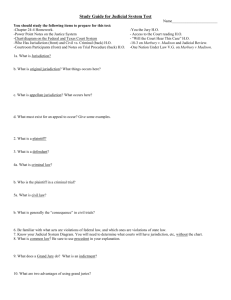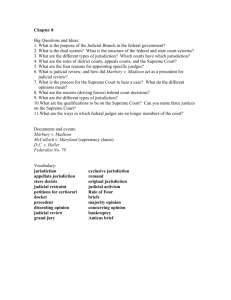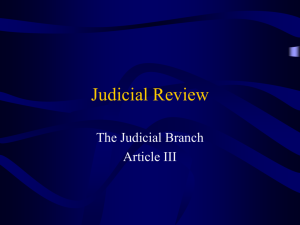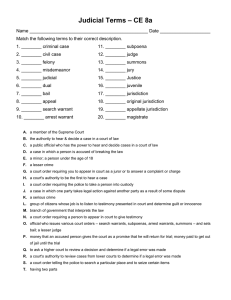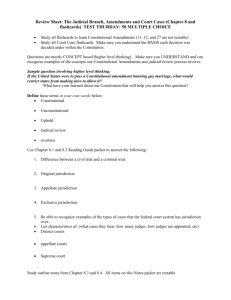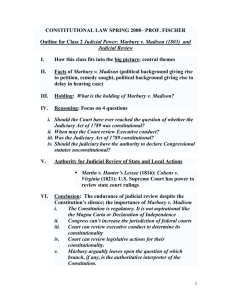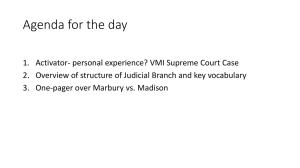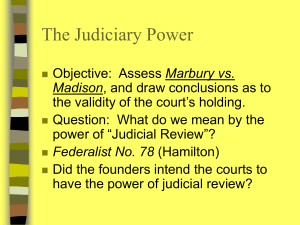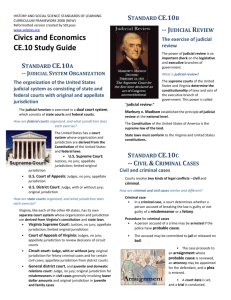Judicial System
advertisement
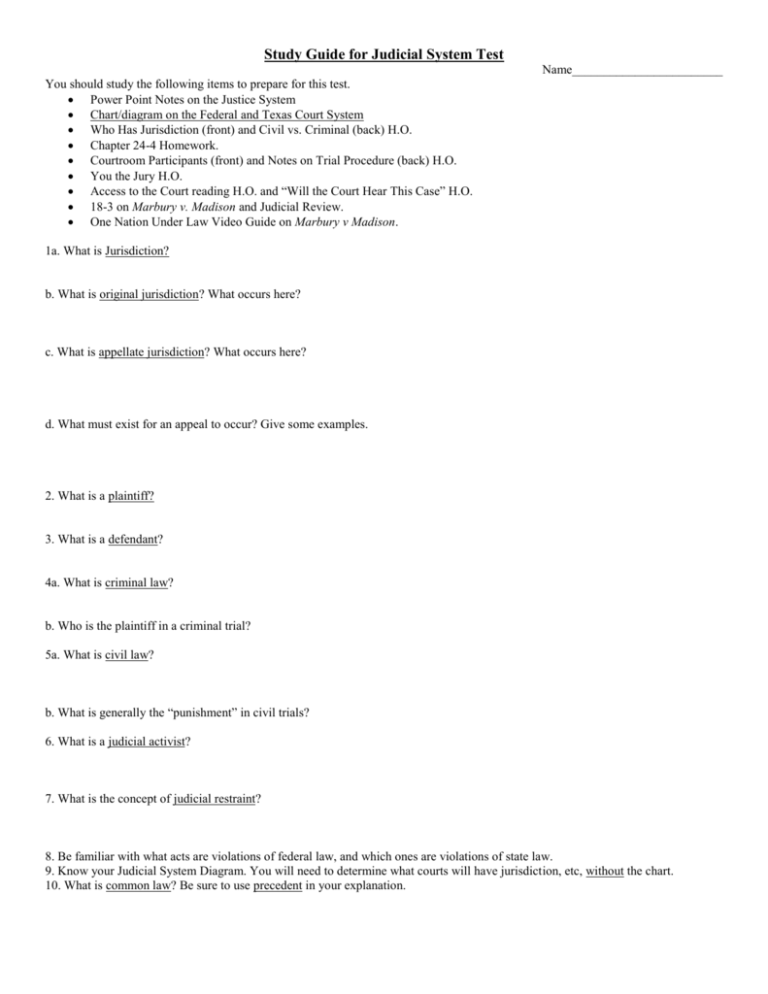
Study Guide for Judicial System Test Name________________________ You should study the following items to prepare for this test. Power Point Notes on the Justice System Chart/diagram on the Federal and Texas Court System Who Has Jurisdiction (front) and Civil vs. Criminal (back) H.O. Chapter 24-4 Homework. Courtroom Participants (front) and Notes on Trial Procedure (back) H.O. You the Jury H.O. Access to the Court reading H.O. and “Will the Court Hear This Case” H.O. 18-3 on Marbury v. Madison and Judicial Review. One Nation Under Law Video Guide on Marbury v Madison. 1a. What is Jurisdiction? b. What is original jurisdiction? What occurs here? c. What is appellate jurisdiction? What occurs here? d. What must exist for an appeal to occur? Give some examples. 2. What is a plaintiff? 3. What is a defendant? 4a. What is criminal law? b. Who is the plaintiff in a criminal trial? 5a. What is civil law? b. What is generally the “punishment” in civil trials? 6. What is a judicial activist? 7. What is the concept of judicial restraint? 8. Be familiar with what acts are violations of federal law, and which ones are violations of state law. 9. Know your Judicial System Diagram. You will need to determine what courts will have jurisdiction, etc, without the chart. 10. What is common law? Be sure to use precedent in your explanation. 11a. What does a Grand Jury do? What is an indictment? 12. What are two advantages of using grand juries? 13a. What is a petit jury? b. Be familiar with aspects of a petit jury in a criminal case (role, oath, verdict, etc). 14. What is a felony? Misdemeanor? 15. What is an injunction? What is its purpose? 16. What is negligence? How does it factor into civil trials? 17. In what situations would the U.S. Supreme Court have Original Jurisdiction? 18a. What is Judicial Review? b. Explain how Marbury v. Madison established Judicial Review. 19. Most of what the Supreme Court does is appellate. Define the following concepts that influence whether or not the Court will consider a case. Be able to apply these concepts to cases to determine whether or not the court would likely hear the case. a. “cases and controversies, or Advisory Opinions” b. Mootc. “Standing to sue” d. “Ripe for Decision” e. “Political Questions” f. “Rule of Four” g. Important Constitutional Question
